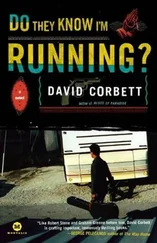“No, not yet,” Eddy said. “Not really.”
“Aha.”
“Which is why it’s important to stay smart.”
Abatangelo wiped his hands on his napkin, felt in his pocket to be sure he had the printout with Shel’s address, and rose from the table. “There’s someplace I’ve gotta be,” he said.
“No, Dan, come on. Don’t. It’s a chump move.”
Abatangelo stiffened. “Chump move. Stay smart. You got something you want to tell me, Ed?”
Eddy looked off, trying to puzzle out where things had gone so wrong. Abatangelo said, “I’ll see you tomorrow morning, fill you in on how it all turns out. Thanks for dinner.”
“Danny, please. Sit down.”
“And the cake,” He started moving away. “You outdid yourself. I mean that.”
Frank surveyed the three vehicles deposited beneath a pole lamp in the Lucky Market parking lot in East Antioch.
“You said three trucks,” Frank said. “These ain’t trucks.”
Two of the vehicles were construction vans. One had the shocks gone in back. The other had bald tires and trails of scaly black rust rimming each wheel well. The third vehicle was a makeshift tool wagon, fashioned from a twenty-foot flatbed with a plywood aftershed bolted down in back. As though all this weren’t bad enough, every one of them was smaller than what Frank had had in mind.
“Lonesome George must’ve seen you fuckers coming,” he said.
Mooch hiked up his collar. “Like a little cheese with that whine, Frank?” A winter drizzle began to fall. “Not like we’re driving to Jupiter.”
“There’s plenty of room, Frank,” Chewy said. He sounded as though he was trying to convince himself. “I mean, how much stuff is there?”
Frank started back for his truck. “Ever try to shove ten pounds of shit into a two-pound bag? That’s how much stuff there is.”
There was something else bothering him. He couldn’t quite figure out what it was. He stood there a moment studying the trucks in the rain, then it came to him. The tool wagon’s aftershed, it was painted a pale blue. Robin’s egg, he believed the color was called. The color was faded, chipped, stained, but even so, it brought to mind the shade of blue found on children’s blankets, painted on the walls of nurseries. He thought of Jesse, and all of sudden it was hard to swallow. The air felt colder than the weather justified.
Not now, he told himself. He reached inside the cabin of his truck, behind the seat, to remove the boltcutter. As he reached for it he spotted the neoprene case in which he kept a loaded Ruger 9 mm. With the seat obscuring him from view, he considered the matter. Like a little cheese with that whine? It was a pretty gun, a good gun. He opened the case, removed the clip from the Ruger, pocketed the clip and shoved the pistol in his waistband, pulling out his shirttail to hide the protruding grip. There was an eight ball of cocaine in the case as well; he stowed it in his pocket. Then he pulled the seat back into place, locked the door and headed for the lead van.
“Stay in a tight line behind me, don’t let anybody cut in,” Frank instructed. “If anything goes wrong with your truck, or whatever the hell you call these things, flash your brights.”
He led them out onto the Delta Highway and they followed it southeast in a chill, misting rain. Beyond Bethany they veered due south on Mountain House Road and shortly pulled up before a sprawling, shabby facility called Easy Access Storage. A hurricane fence surrounded the premises, sagging halfway to the ground in places. Inside, the storage sheds defiled like deserted barracks in the misty darkness, tin-roofed stucco sheds stained with oil and patched here and there with mismatched spackling. Hellhole Estates, Frank thought. But that was the genius of it. Hiding stolen goods worth $150,000 beneath a trash pile in the middle of nowhere.
The storage facility was but one more enterprise operated by Felix Randall. He’d bought it from a local family who’d packed up and moved to Idaho, part of the mass white flight increasingly common to the region, given the growing Mexican influx. Felix used the place intermittently to house his speed labs and store contraband. He left it unguarded on the principle he’d rather lose whatever he decided to leave there than risk handing some ill-paid henchling over to the law. He could always hunt down a thief. He couldn’t always compromise a snitch.
Frank got out of his van and walked back to the twins, telling them to stay put. Boltcutter in hand, he crossed the road.
Cocking an ear for oncoming traffic, he cut the gate chain, tossed it aside, and waved the twins on in, pointing down the nearest gravel lane. They pulled down to the last door, out of sight from the road. Frank ran back to his own van, drove it past the gate, got out, closed the gate behind him and circled the chain cosmetically around the forepost again.
He joined the twins at the roll-away door to Unit No. 209. Using the boltcutter again he snipped away the padlock and rolled up the door. The shed was sixteen feet high, thirty feet wide and fifty feet deep. It was stuffed floor to roof, front to back, with electronic equipment- one million feet of unshielded, twisted four-pair cable and assorted patch panels, tyraps, Chatsworth racks. Wholesale price for the stuff was near $150 grand. Frank would get thirty for the job. He’d promised to pay the twins five between them.
The wire and panels were being handed off to a Mexican named Cesar Pazienza. Cesar referred to himself as a foreman, claiming to work for a rich hacendado named Rolando Moreira. Frank had met Cesar while scouting out lab sites for Roy Akers along the far shore of the Sacramento River. While driving around the farm roads, Frank had come across a new hotel he’d never seen or heard of before, out in the middle of nowhere. When he ventured inside, Cesar was the first man he met. After a little cat-and-mouse, they saw their way through to some business.
Chewy viewed the densely packed material with a shudder of astonishment. Frank slapped him on the back so hard he stumbled forward.
“Now you know,” he said, “why I wanted trucks.”
It took them an hour to load it all, stuffing it in as best they could. They repacked the tool wagon twice just to find a way to get it all, and all three vehicles sagged from their loads. Despite the cold, everybody stank from sweat. The odor had a chemical taint.
Frank paused from time to time to study his accomplices. Mooch in particular. Ever since the kid had made that crack about wanting a stab at Shel, Frank had been afflicted with sadistic fantasies. It wasn’t wild conjecture to believe that Mooch might be the secret object of Shel’s inexplicable mood swings of late. He had to control an impulse to rush the boy from behind and deliver one good hard blow to the back of the head.
Shel walked out the kitchen door, following her shadow down the gravel walkway to the barn. A faint wail stopped her. She cocked an ear to the wind, then turned toward the sound. After a moment it clarified- a car engine, wound out at high revolutions in low gear, tires screaming on the backroad curves. Whoever was driving preferred to redline on the straightaways rather than downshift on the turns. Probably means it’s stolen, Shel surmised. Probably means it’s coming this way, too.
The car got waved in by the man posted as a watch at the gate. It swerved onto the ranch house side road, tailspinning into a culvert and digging itself out again, spewing mud and rock till it straightened out. It came toward the ranch house at a slightly slower speed, fixing Shel in its headlights.
Coming abreast of her, the car slowed to a stop. The driver, leaning across the front seat, rolled down the passenger window and said, “Roy sent me to fetch ya.”
Читать дальше












